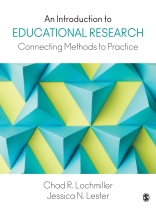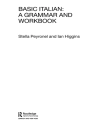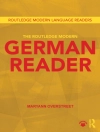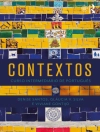Expand your understanding of educational research with this practice-first introduction.
Written specifically for education practitioners, An Introduction to Educational Research: Connecting Methods to Practice approaches research methods from a practice-first perspective that aligns research with professional experiences and identifies the tools and resources readers can use when conducting their own research. Throughout the book, the authors illuminate complex research concepts using problems of practice confronting educators to help readers make meaningful connections with key concepts and research practices. The authors present balanced coverage across research methodologies that is linked to practice, so readers clearly see research as a tool they can use to improve classrooms, schools, districts, and educational organizations.
Daftar Isi
Part I: Examining the Foundations of Educational Research
Chapter 1: Studying Education Practice with Research
Practitioner-Scholars Defined
Using Problems of Practice to Frame Research
An Overview of the Problems of Practice
The Purposes and Types of Educational Research
Research Paradigms
Defining Research Methodologies and Research Methods
Chapter 2: Designing a Research Study
The Overarching Research Process
Designing a Research Study
Chapter 3: Reviewing the Literature
The Importance of the Literature Review
Unpacking the Literature Review
Difference between Qualitative and Quantitative Literature Reviews
The Process of Conducting a Literature Review
Staying Organized and Updated: A Few Reminders
Using Technology to Complete the Literature Review
Chapter 4: Considering Research Ethics
Ethics and Educational Research
Legal and Institutional Ethical Requirements
Managing Research Relationships with Schools and Districts
Considering Ethics Across the Research Process
Emerging Ethical Challenges
Part II: Considering Approaches to Educational Research
Chapter 5: Introducing Qualitative Research
Characteristics of Qualitative Research
Qualitative Methodologies
Chapter 6: Introducing Quantitative Research
Quantitative Research: Aims and Purposes
Characteristics of Quantitative Research
Quantitative Research Designs
Chapter 7: Collecting Qualitative and Quantitative Data
Sampling Strategies
Site Access and Participant Recruitment
Collecting Qualitative Data
Collecting Quantitative Data
Considering Technology Tools to Support Data Collection
Chapter 8: Completing Qualitative Data Analysis
Defining Qualitative Data Analysis: Aims and Purposes
Carrying Out Qualitative Data Analysis
Issues of Validity in Qualitative Research
Technology that Supports Qualitative Data Analysis
Chapter 9: Completing Quantitative Data Analysis
Quantitative Data Analysis: A Cyclical Approach
Descriptive statistics: Identifying Patterns, Trends, and Frequencies
Calculating Inferential Statistics
A Few of The Most Common Statistical Tests
Identifying Missing or Out-of-Range Data
Reliability and Validity in Quantitative Research
Technology that Supports Quantitative Data Analysis
Chapter 10: Introducing Mixed Methods Research and Analysis
Defining Mixed Methods Research
Characteristics of Mixed Methods Research
Mixed Methods Research Designs
Models of Mixed Methods Research
Selecting a Fixed or Emergent Mixed Methods Design
Beyond Selecting a Mixed Methods Model
Carrying Out a Mixed Methods Study
Mixed Methods Analysis
Chapter 11: Introducing Action Research
Overview of Action Research
The Action Research Cycle
Unique Considerations for Action Research
Using Technology in Action Research
Part III: Producing Research to Improve Practice
Chapter 12: Writing the Research
Engaging in the Academic Writing Process
The Basic Structure of a Research Report
Formulating Arguments and Presenting Findings
Technologies to Support Writing and Disseminating Research
Chapter 13: Using and Sharing Research to Improve Practice
Revisiting the Meaning of Practitioner-Scholarship
Technologies to Support Sharing Research
Summarizing the Research Process and the Methodologies Presented
Returning to the Place We Began: Problems of Practice
Conclusion
Tentang Penulis
Jessica Lester is a Professor of Inquiry Methodology in the School of Education at Indiana University, Bloomington. Having been trained in cultural studies and qualitative research methodology, she takes an interdisciplinary approach to her scholarship, including both the methodological and substantive foci of her research program. In her methodological work, Lester focuses on the study of language-based methods, digital tools in qualitative research, and disability in qualitative inquiry. Her substantive research has focused on examining interactional practices in clinical and educational contexts that involve children and youth. Lester has received numerous awards for her scholarship, among them the 2014 AERA Division D Early Career Award in Measurement and Research Methodology, the 2018 APA Distinguished Early Career Contributions in Qualitative Inquiry Award, and the 2022 American Educational Studies Association Critics’ Choice Book Award. At Indiana University, Lester teaches qualitative methods courses and was recently recognized by the 2022 Gorman Distinguished Teaching Award.












